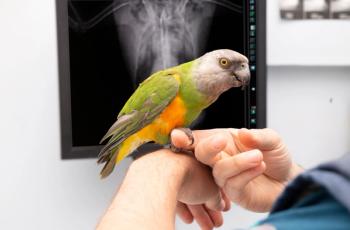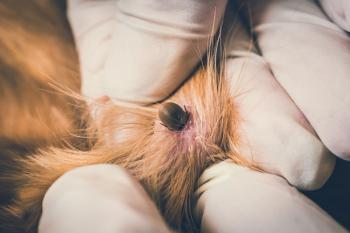
FDA approves generic florfenicol drug for certain freshwater fish
The Phibro Animal Health product is the first of its kind for controlling mortality in some aquatic species
Officials with the FDA have approved the first generic florfenicol drug (Paqflor; Phibro Animal Health) for controlling mortality in certain species of freshwater-reared fish. This newly approved therapy contains the same active ingredient as the approved brand name drug product Aquaflor (Merck Animal Health), which was first approved on October 24, 2005, and contains no inactive ingredients that may significantly affect the bioavailability of florfenicol, according to the FDA.1
Over the past several decades, the FDA has implemented policies to help ensure that medically important antimicrobials approved for use in animals, including fish, are used in a manner that is consistent with principles of antimicrobial stewardship, according to an agency news release. All medically important antimicrobials for animals require the oversight of a licensed veterinarian because the FDA believes that, given their specialized training and experience, veterinarians play a critical role in antimicrobial stewardship and can help reduce the risks of antimicrobial resistance.1
As florfenicol products, both Paqflor and Aquaflor are classified as veterinary feed directive drugs and are only available by or on the order of a licensed veterinarian.1,2 Paqflor is marketed under the same conditions of approval as Aquaflor, and the labeling for Paqflor contains the same language dictating how it can be used.2
Earlier this year, the FDA approved 2 new indications for Aquaflor. According to Merck, the supplemental approval increased the maximum daily dosage for freshwater-reared finfish—other than freshwater-reared warmwater finfish—for 10-15 mg/kg body weight and changed the conditions for use to allow florfenicol in recirculating aquaculture systems.2
Those approvals allows for control of mortality caused by furunculosis associated with Aeromonas salmonicida in freshwater-reared salmonids and for control of mortality caused by coldwater disease associated with Flavobacterium psychrophilum at a maximum dose rate of 15 mg/kg. Additionally, the drug can be used for control of mortality caused by columnaris disease in all freshwater-reared finfish, including freshwater-reared salmonids.2
“This new dose rate allows producers of trout and other freshwater-reared salmonids increased flexibility in managing these 3 important bacterial diseases,” Tim Kniffen, DVM, technical services manager, Merck Animal Health, said in a news release.2 “We are pleased to be able to continue to offer our customers solutions-focused products that meet the ever-changing needs of their businesses."
Environmental assessments prepared for Aquaflor found no significant environmental impacts were expected from the approved uses of the drug, according to the FDA. The federal agency established acute and chronic water quality benchmarks to protect freshwater aquatic life and included these on the labeling of Aquaflor for use by permitting authorities.1
In determining approval for Paqflor, officials with the FDA also assessed the safety of edible products from fish treated with this generic drug. They determined that, when used according to the labeling, any residues of florfenicol that remain in the edible tissues of treated fish are at a concentration that meet the agency’s standard of reasonable certainty of no harm to people eating the fish.1
References
- FDA approves first generic florfenicol for controlling mortality in freshwater-reared fish. News release. FDA. November 14, 2024. Accessed November 14, 2024.
https://www.fda.gov/animal-veterinary/cvm-updates/fda-approves-first-generic-florfenicol-controlling-mortality-freshwater-reared-fish?utm_medium=email&utm_source=govdelivery - FDA grants Merck Animal Health approval for 2 new Aquaflor indications. News release. Merck Animal Health. March 14, 2024. Accessed November 14, 2024.
https://www.merck-animal-health-usa.com/newsroom/fda-grants-merck-animal-health-approval-for-two-new-aquaflor-indications
Newsletter
From exam room tips to practice management insights, get trusted veterinary news delivered straight to your inbox—subscribe to dvm360.




